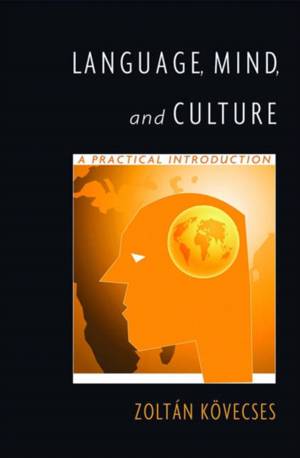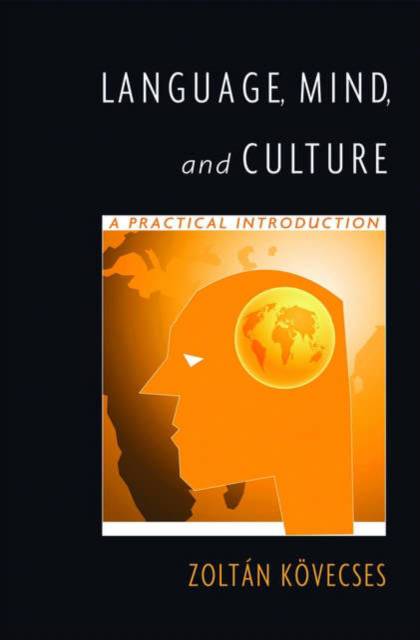
Je cadeautjes zeker op tijd in huis hebben voor de feestdagen? Kom langs in onze winkels en vind het perfecte geschenk!
- Afhalen na 1 uur in een winkel met voorraad
- Gratis thuislevering in België vanaf € 30
- Ruim aanbod met 7 miljoen producten
Je cadeautjes zeker op tijd in huis hebben voor de feestdagen? Kom langs in onze winkels en vind het perfecte geschenk!
- Afhalen na 1 uur in een winkel met voorraad
- Gratis thuislevering in België vanaf € 30
- Ruim aanbod met 7 miljoen producten
Zoeken
Omschrijving
How do we make sense of our experience? In order to understand how we construct meaning, the varied and complex relationships among language, mind, and culture need to be understood. While cognitive linguists typically study the cognitive aspects of language, and linguistic anthropologists typically study language and culture, Language, Mind, and Culture is the first book to combine all three and provide an account of meaning-making in language and culture by examining the many cognitive operations in this process. In addition to providing a comprehensive theory of how we can account for meaning making, Language, Mind, and Culture is a textbook for anyone interested in the fascinating issues surrounding the relationship between language, mind, and culture. Further, the book is also a "practical" introduction: most of the chapters include exercises that help the student understand the theoretical issues. No prior knowledge of linguistics is assumed, and the material is accessible and useful to students in a variety of other disciplines, such as anthropology, English, sociology, philosophy, psychology, communication, rhetoric, and others. Language, Mind, and Culture helps us make sense of not only linguistic meaning but also of some of the important personal and social issues we encounter in our lives as members of particular cultures and as human beings.
Specificaties
Betrokkenen
- Auteur(s):
- Uitgeverij:
Inhoud
- Aantal bladzijden:
- 416
- Taal:
- Engels
Eigenschappen
- Productcode (EAN):
- 9780195187205
- Verschijningsdatum:
- 12/10/2006
- Uitvoering:
- Paperback
- Formaat:
- Trade paperback (VS)
- Afmetingen:
- 161 mm x 235 mm
- Gewicht:
- 607 g

Alleen bij Standaard Boekhandel
Beoordelingen
We publiceren alleen reviews die voldoen aan de voorwaarden voor reviews. Bekijk onze voorwaarden voor reviews.









